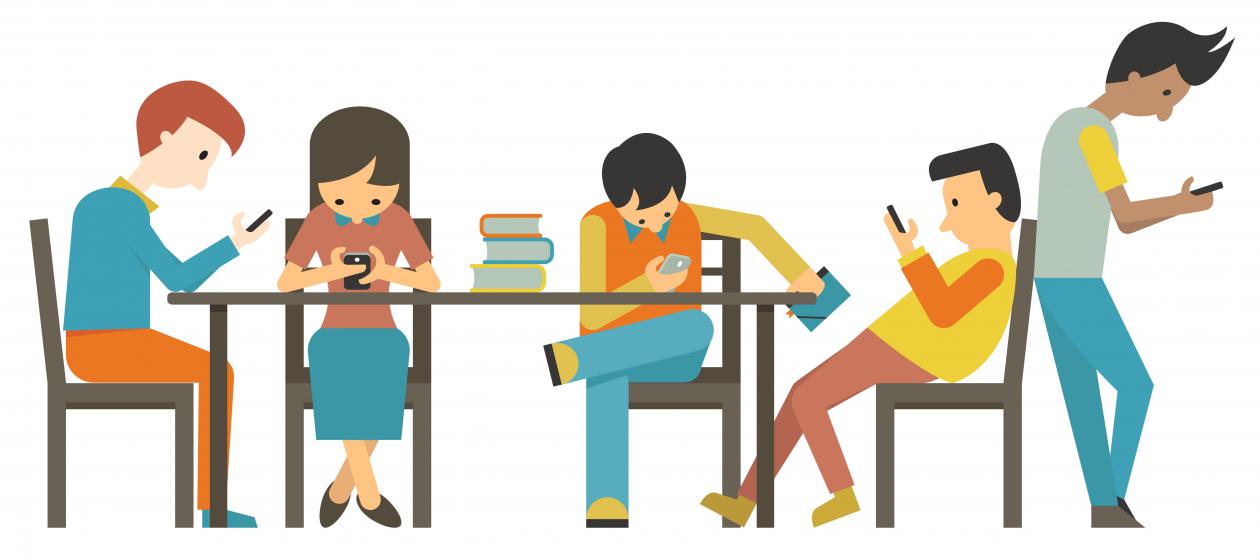Smartphone Addition Found To Display an Imbalance in Brain Chemistry
Agreeably, smartphones are magical.
A device that’s small enough to fit in your pocket (at least most of them still do), allows you to instantly communicate with virtually anyone on earth, take breathtaking photos, and access humanity’s collected knowledge. Amazing!
But like any magical implement, the smartphone’s power can be so consuming that all you want to do is stare into its comforting, glowing, little screen and cling to it like Gollum does his “Precious” in LOTR.
Unsurprising, as a result, a growing number of people feel disconcerted with the insatiable pull their phones exercise on them. And a worrying new study suggests that this dependence on the technology could even be affecting some teens’ brains.
Kids who compulsively used the internet or fiddled with their phones tended to have increased neurotransmitter activity in the anterior cingulate cortex, a region tied to the brain’s systems of behavior reward, control of inhibition and mood regulation, a team of South Korean researchers found.
The research team, led by Dr. Hyung Suk Seo at Korea University in Seoul, used a scanning technique called magnetic resonance spectroscopy (MRS) to evaluate the brains of 19 teenagers diagnosed with internet or smartphone addiction.
Compared with the control group, the teens with internet and smartphone addiction showed a clear overabundance of a neurotransmitter called gamma-aminobutyric acid (GABA) a neurotransmitter in the brain that inhibits or slows down brain signals, and glutamate-glutamine (Glx), a neurotransmitter that causes neurons to become more electrically excited. They were found in one region of the limbic system, the brain’s emotional control center.
GABA is found in everyone’s brain, but too much of this neurotransmitter in the wrong areas can have stultifying effects.”When the normal function of the limbic system is disturbed, patients can develop anxiety, depression or addiction,” said Dr. Max Wintermark, a professor of radiology and the chief of neuroradiology at Stanford University.
Previous studies have linked GABA to vision and motor control and the regulation of various brain functions, including anxiety. The changes in the brain could also be linked to problems with processing information and emotions, according to Hyung Suk Seo.
The teens who participated in Seo’s study all took standardized tests used to diagnose internet and smartphone addiction. The participants whose scores indicated an addiction tended to say that their internet and smartphone use interfered with their daily routines, social lives, sleep and productivity. These teenagers also had significantly higher scores in depression, anxiety, insomnia and impulsivity than the control group (the participants whose scores did not indicate internet addiction).

The results of the magnetic resonance spectroscopy showed that, compared to the healthy controls, the ratio of GABA to Glx was significantly increased in the anterior cingulate cortex of smartphone- and internet-addicted youth prior to therapy.
Having too much GABA can result in a number of side effects, including drowsiness and anxiety. “The increased GABA levels and disrupted balance between GABA and glutamate in the anterior cingulate cortex may contribute to our understanding the pathophysiology of and treatment for addictions,” Dr. Seo said.
The behavioral therapy utilized in the study certainly seemed to have the desired effect. The ratio of GABA to Glx in the subjects suffering from addiction was found to be substantially lower, or even brought down to normal levels, in the MRS exams that followed the treatment.
With technology quickly becoming an essential and vital part of our lives, smartphone addiction is probably a consequence. The constant feeling of need to check some wireless device has created a society where people feel anxious or even confused when not electronically connected. Much like a drug, technology has become a fix without an easy escape.































